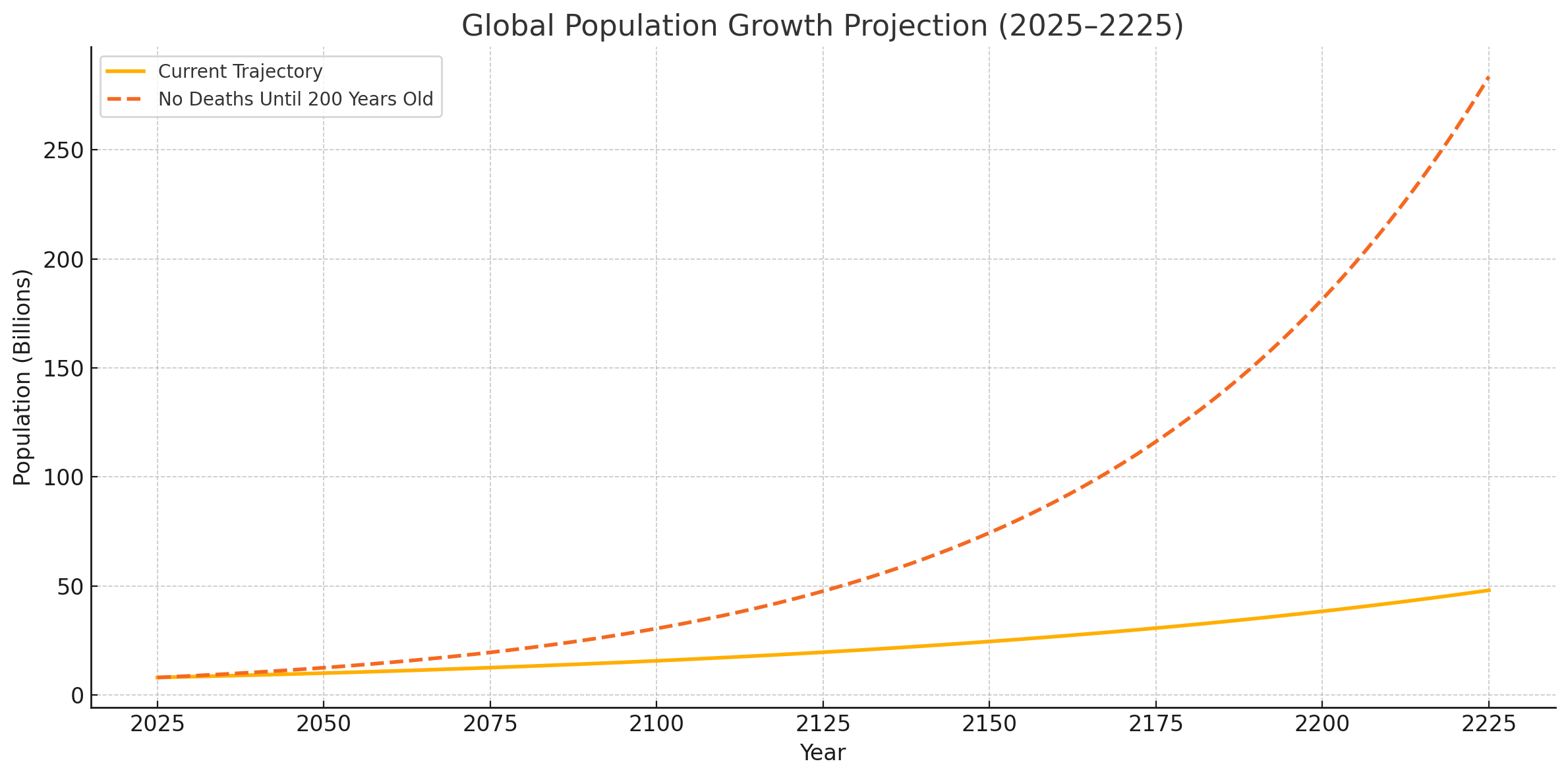Rich Saviour Removes Death. And We All Suffer.
In a recent interview, Google DeepMind CEO Demis Hassabis made an astonishing claim: “The end of disease could be within reach in the next decade.” With AI now accelerating drug development timelines from years to months—or even weeks—the prospect of eradicating illness feels increasingly tangible. The technology is stunning. The ambition is seductive. But the implications are more dystopian than divine.
Imagine a world where no one dies from disease. Where people routinely live to 200. It sounds amazing—until you think about what that world looks like. Yes, death is bad. But eternal life, or even vastly extended life, is systematically irresponsible. Solving death isn’t the same as solving suffering. In fact, it may amplify it.
The fantasy of the rich saviour—the billionaire tech founder who cheats death and “saves” humanity—sits at the feverish centre of a hype-fuelled Venn diagram where AI, profitable healthcare, and the god complex converge. It’s the ultimate Tech Bro daydream: disrupt mortality itself. But this dream, if realised, would shatter more than social norms. It would break the system.
Not just the social security system—although that would undoubtedly collapse under the weight of 150-year-old retirees. No, the real casualty would be our relationship with death. Death, as it stands, holds a strange social contract. It's unpredictable. Often tragic. Sometimes sudden—like traffic accidents. But it also marks an ending, a transition point that shapes the human experience. It gives urgency to life.
We are already in the early stages of population distortion due to ageing. Governments across Japan, South Korea, Germany, the UK, and the US are grappling with the economic and societal implications of inverted population pyramids. And while they saw it coming, political inertia has ensured little has been done. Fixing this is hard. It would take serious reform, perhaps higher taxes.
Instead, the easier path is doubling down on the problem. Throw AI at it. Extend life. Increase the number of elderly people. Accelerate the pressure on resources, housing, employment, and the environment. Make the crisis worse, but make it look like progress. Push the poor further away from the rich.
We can beat death by improving the life we all have - rich and poor. We’ve already seen what we’re capable of when we really commit. Take polio. According to the Gate Foundation in 1988, it paralysed 1,000 children a day across 125 countries. Thanks to sustained immunisation efforts, the incidence of polio has since dropped by 99%. We know how to solve diseases. What we lack is not innovation but implementation. Political will. Organisational capacity. Effective communication. The hardest part of saving lives isn’t discovering cures—it’s delivering them.
Yet while billions live in systems where access to basic healthcare is fragile or absent, wealthy individuals are funnelling resources into private longevity labs. The comfortable pay more and more for longer, “better” lives. The poor get left behind in systems still trying to fund their first ambulance.
Lets imagine and visualise what a world without death, or even a very long life, might look like. Two population charts, stretching from 2025 to 2225: one showing the current trajectory, the other showing what happens if no one dies until 200. The result? A sharp, exponential surge. A future of overcrowding, dwindling resources, and stressed infrastructure. A world that can’t breathe.
We need better systems to deliver the treatments we already have. We need fewer billionaires chasing immortality and more leaders focused on global health equity. We don’t need to cheat death. We need to understand it better—and live well within its limits.
Endings for life can be just. Having a full life of health should be accessible for everyone. Extending life for rich people will impact everyone. That is not a good end for the majority of people.


